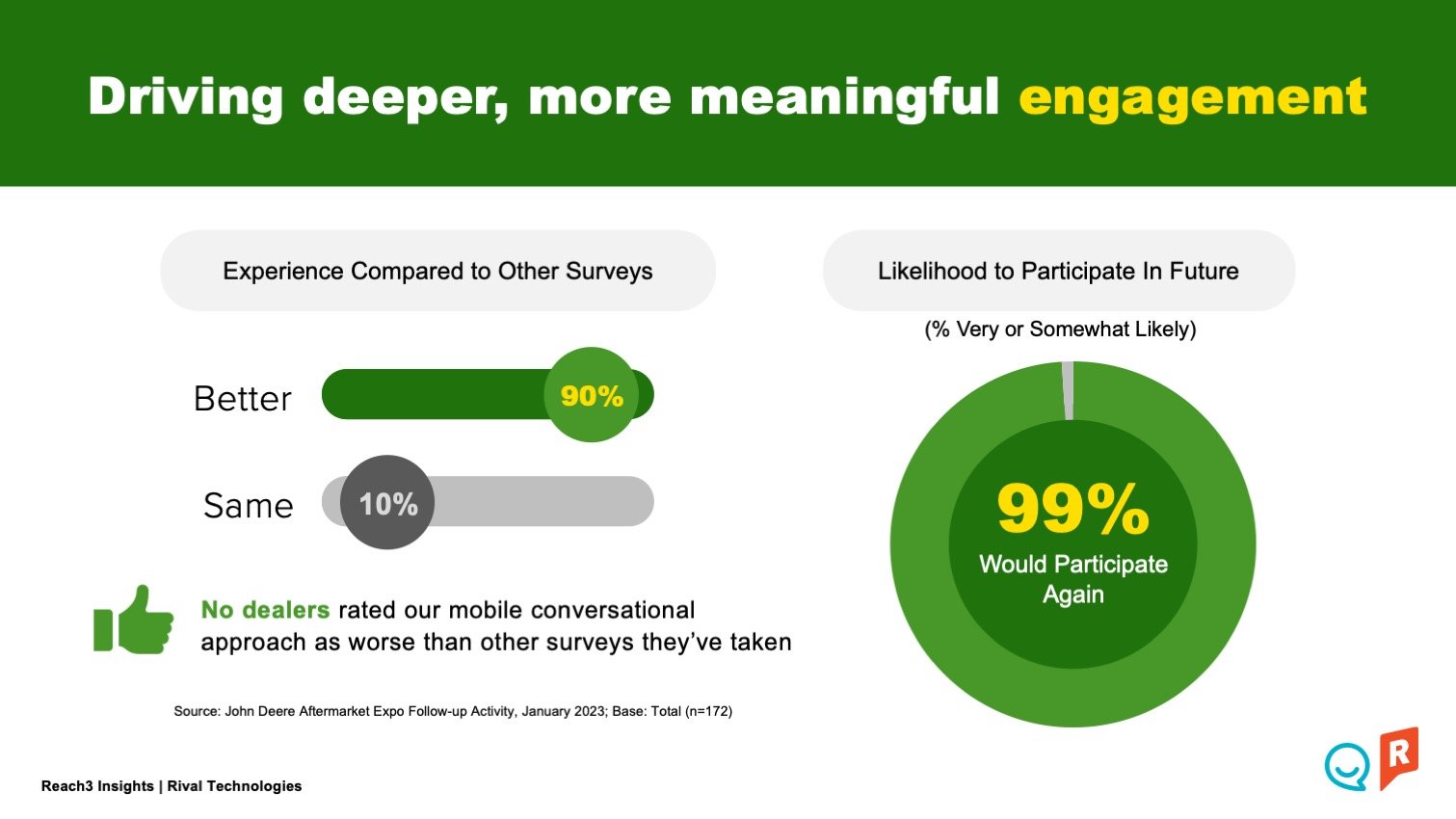
In an era where marketers carefully craft and optimize every customer interaction, one crucial touchpoint remains curiously neglected: market research. That’s the bold yet timely message from Paula Catoira, CMO of Rival Technologies and Reach3 Insights, in her article for the CMO Council.
"Done well, research is more than a tool for gathering insights—it’s a moment to deepen connection and build loyalty."
According to Paula, marketers obsess over how their brand shows up in ads, on shelves, at events, and across digital channels—but they often miss the fact that research itself is a brand experience.
“Surveys, focus groups, and feedback loops are often a customer's first direct interaction with a brand,” she writes. And yet, these moments are frequently treated as transactional exercises, disconnected from the brand’s tone, values, and customer journey.
At the core of Paula’s argument is the idea that research isn’t just a tool for collecting data—it’s a moment of relationship-building. Unlike traditional advertising, research invites customers to participate, to co-create, and to influence. It can make people feel heard, valued, and part of something bigger. When done right, it moves beyond a checkbox activity and becomes a chance to foster brand loyalty.
Unlike traditional advertising, research invites customers to participate, to co-create, and to influence.
But that only happens when marketers prioritize the participant experience. “It’s not just what you ask—it’s how you ask,” Paula notes. Cold, rigid survey forms send one message; conversational, human-centered design sends another. And that’s where conversational research comes in.
Forward-thinking brands are moving away from long, impersonal surveys and toward dynamic, mobile-friendly formats that mimic real conversations. Think chat-based feedback, short videos, emoji reactions, and even gamified experiences. These modern research methods meet people where they are—on their phones, in their own words—and result in more honest, richer input.
As Paula highlights, John Deere is one example of a brand that has already embraced this shift. When they asked their insight community members about the new experience, 90% said they preferred conversational surveys over traditional online surveys, and 99% said they’d be willing to participate again. That’s not just a data win—it’s brand advocacy in action.

Paula’s article encourages CMOs to stop isolating research as a back-office function. Instead, treat it like any campaign: integrate it into your loyalty programs, promote it through your owned channels, and ensure the tone matches the rest of your brand experience. Even small touches—a personalized welcome message, a thank-you email that closes the loop—can reinforce your brand’s values and build trust.
The best brands are already ahead. Companies like Coca-Cola, Carnival Corporation, and Kellanova are embedding research into their broader customer engagement strategies, using real-time quant, qual and video feedback to shape experiences, refine messaging, and even boost sales.
Paula's message to her fellow CMOs is clear: Research is a chance to really impress your customers and win their loyalty.
In today’s landscape, every interaction matters—especially the ones that ask customers to speak up. When you make research feel more like a conversation and less like a chore, you don’t just get better data—you earn deeper connection.
Paula concludes, "Start seeing research for what it really is: a high-impact, brand-building moment that most of your competitors are still ignoring."
To read Paula's article, please head over to the CMO Council website.
Subscribe to our blog to receive the latest news, trends and best practices from market research experts.


No Comments Yet
Let us know what you think